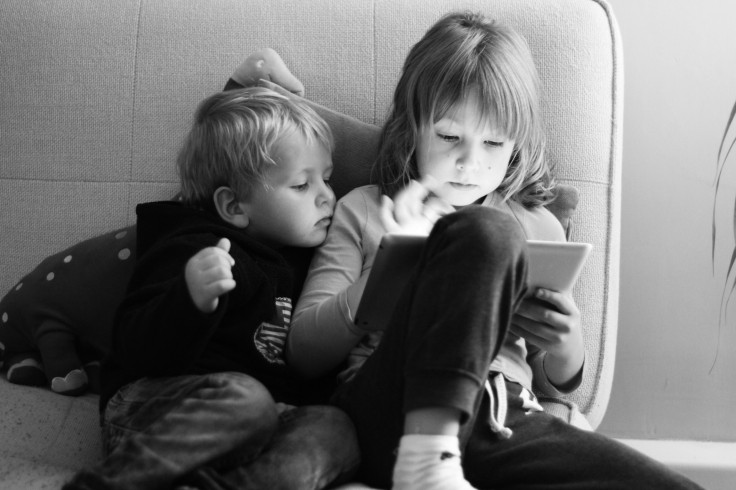Toddler Tantrums: Using Tablet Devices To Calm Kids Down May Damage Parent-Child Relationship

Many a parent has tried to pacify a tantrum-throwing toddler with the distracting glare of a tablet game, and according to a team of pediatricians from the C.S. Mott Children’s Hospital at the University of Michigan, some use it as a coping mechanism more than others. Their findings, published in JAMA Pediatrics, reveal parents have a tendency to hand their child a tablet or smartphone in certain situations to calm them down. The more difficult the child, the more parents hand over the screens.
"We know that parents of babies and toddlers with difficult behavior disproportionately use television and videos as calming tools," said the study’s lead author Dr. Jenny Radesky, a child behavior expert and pediatrics professor at C.S. Mott Children's Hospital, in a press release. “We wanted to explore whether the same might be true for mobile technology like phones and tablets.”
For the study, researchers recruited 144 healthy toddlers between the ages of 15 and 36 months from low-income families. They interviewed the children’s parents to find out how often they allowed their children to use a smartphone or tablet and in what kinds of circumstances. Researchers learned that parents were more likely to use devices as a way to calm their child down if they tended to throw tantrums and exhibit other difficult behavior.
"We found that the less control and more frustration parents felt over their children's behavior, the more likely they were to turn to mobile devices to help calm their kids down," Radesky said. "We need to further study whether this relationship between digital technology and social-emotional development difficulties applies to a more general population of parents as well, and what effect it might have on kids' longer-term outcomes."
A 2015 study found that by the time children turn one, they are able to navigate a tablet as well as their parent — an accelerated learning phenomenon that’s happened quickly among new generations. Researchers continue to examine the new trend in order to develop tablets for educational uses. But in the meantime, it’s more likely the child will use tablets, television, and the like as a glorified babysitter to calm them down instead of as an educational tool.
Television not only distracts a child from whatever may have caused the tantrum in the first place, but one hour of screen time increases the risk of obesity among first graders by 60 percent, according to a recent study. It also hinders the communication between parent and child, decreasing the likelihood the child will listen to their parent the next time an incident occurs. Pacifying difficult children with a device doesn’t treat their behavior, but instead delays and possibly worsens the problem, according to the researchers.
"Other studies show that increased television time can hinder young children's language and social development, partly because they reduce human-to-human interaction," Radesky said. "Now that screens can be taken anywhere, they have become part of our interpersonal space. We're interested in identifying the ways that mobile devices sometimes interfere with family dynamics, but also how we can use them as a tool to increase parent-child connection."
Source: Radesky J, Peacock-Chambers E, Zuckerman B, and Silverstein M. Use of Mobile Technology to Calm Upset Children: Associations with Social-Emotional development. JAMA Pediatrics . 2016



























